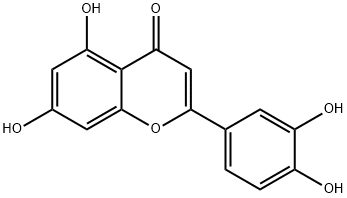The effect of dietary Luteolin on glycolipid metabolism disorder
Nov 23,2023
Introduction of Luteolin
Luteolin is a naturally occurring flavonoid in the flavonoid group that exists in glycosylated form, commonly found in edible plants, and have a wide range of biological activities such as antioxidant, anticancer, anti-inflammatory, anti-angiogenic, modulation of skin inflammation and neuroprotective effects. It is closely related to a variety of diseases such as cancer (lung cancer), inflammatory skin diseases (psoriasis, psoriasis, contact dermatitis, atopic dermatitis), inflammatory bowel disease, hypertension, disorders of glucolipid metabolism (diabetes, obesity) and is a potentially active ingredient in the treatment of these diseases.
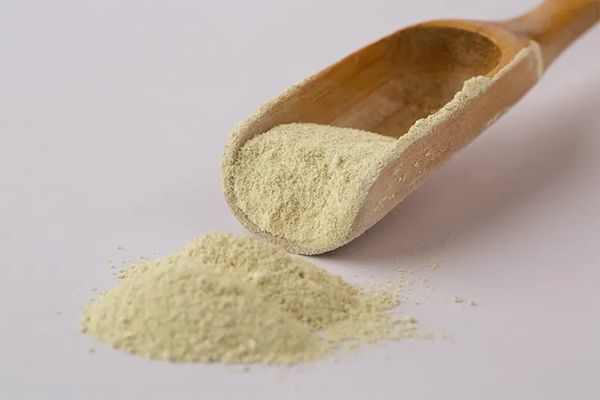
Luteolin, as a natural compound with a wide range of biological activities, are an ideal dietary supplement for maintaining metabolic homeostasis, especially significantly favouring carbohydrate and lipid metabolism. However, the anti-glycolipid disorder effects of lignans in human studies and clinical trials remain limited.
Luteolin and Glycolipid metabolism disorder
Glycolipid metabolism disorder (GLMD) is a main category of metabolic syndrome that is characterized by abdominal obesity and aberrant metabolic abnormalities of lipids and carbohydrates in the blood, including type 2 diabetes, obesity, hyperlipidemia, and insulin resistance. The occurrence of GLMD is partly due to the ectopic accumulation of fat in the liver, muscle, heart, pancreas, bone marrow, and other tissues via multi-organ circuit.
However, treatment with luteolin was found to ameliorate high-fat-diet (HFD)-induced cognitive dysfunction, oxidative stress, neuroinflammation, neuron insulin resistance, and glucose metabolic disorder in the brain.60 The beneficial effects of luteolin on these indices may be attributed to its antidiabetic, antioxidant, and choline esterase inhibition activities
More potently, luteolin ameliorated diabetes better than luteolin-7-O-gludoside.72 Additionally, elevated hepatic mRNA expression levels involved in the Kennedy pathway and sphingolipid biosynthesis in HFD-induced obese mice were dramatically suppressed by treatment with luteolin, indicating its favorable effects on obesity and dyslipidemia. The important role of luteolin in regulation of glycolipid metabolism positively associates with the activation of the AMPK pathway. Activation of the liver X receptor α (LXRα)-related pathway is also considered as a potential approach in cellular lipogenesis management. However, emerging evidence also suggests that luteolin administration elevated the LXRα-mediated pathway by increasing the expression of ATP-binding cassette subfamily G member 1 (ABCG1) and scavenger receptor class B member 1 (SRB1) as well as cholesterol 7α-hydroxylase (Cyp7α1), ameliorating glucose intolerance and downregulating gluconeogenesis-associated enzymes in the liver of obese mice. The different effects are partially dependent upon whether LXR target gene SREBP-1c (the master regulator of genes involved in lipogenesis) participates in the process.
Dietary luteolin imparts its antiobesity and antidiabetic effects in part through adipose tissue, which includes (1) lowering lipid peroxidation and improvement of antioxidant enzymes; (2) reducing adipocyte hypertrophy and mast cell infiltration into adipose tissue; (3) improving glucose uptake and insulin sensitivity, and (4) inhibiting adipose tissue inflammation.
References:
[1] ZHENYU WANG. Dietary Luteolin: A Narrative Review Focusing on Its Pharmacokinetic Properties and Effects on Glycolipid Metabolism[J]. Journal of Agricultural and Food Chemistry, 2021, 69 5: 1441-1454. DOI:10.1021/acs.jafc.0c08085.
[2] FABIAN GENDRISCH. Luteolin as a modulator of skin aging and inflammation[J]. BioFactors, 2020, 47 2: 170-180. DOI:10.1002/biof.1699.
[3] LAURA FRANZA. Luteolin, inflammation and cancer: Special emphasis on gut microbiota[J]. BioFactors, 2021, 47 2: 181-189. DOI:10.1002/biof.1710.
- Related articles
- Related Qustion
- Luteolin: activities and pharmacokinetics Dec 18, 2023
Luteolin is a bioactive flavonoid with anti-inflammatory, anti-cancer properties and pharmacokinetics enhanced by nanotechnology for therapeutic use.
- Luteolin: mechanism of action and clinical applications Aug 1, 2023
Luteolin inhibits inflammation, tumor growth, and promotes healing. It shows promise in treating skin cancer, wounds, and psoriasis.
- Luteolin - A flavone common in plants Oct 30, 2019
Luteolin, 3′,4′,5,7-tetrahydroxyflavone, is a common flavonoid that exists in many types of plants including fruits, vegetables, and medicinal herbs.
Articaine hydrochloride is a local anesthetic with fast onset, long duration, and effective pain relief, but caution should be exercised due to potential side effects.....
Nov 23,2023APICyclopropyl Methyl Ketone, a colorless, fruity-odored compound, is widely used in pharmaceuticals and chemicals but requires stringent safety measures due to its toxicity and flammability.....
Nov 23,2023APILuteolin
491-70-3You may like
- Luteolin
-
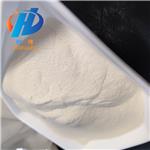
- $10.00/ kg
- 2024-04-28
- CAS:491-70-3
- Min. Order: 1kg
- Purity: 99.8%
- Supply Ability: 10000ton
- Luteolin
-
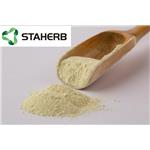
- $10.00 / 1kg
- 2024-04-28
- CAS:497-70-3
- Min. Order: 1kg
- Purity: 98%HPLC
- Supply Ability: 10000
- luteolin
-
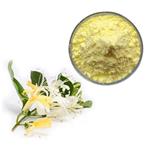
- $0.00 / 1KG
- 2024-04-28
- CAS:491-70-3
- Min. Order: 1KG
- Purity: ≥98% HPLC
- Supply Ability: 1000KG




